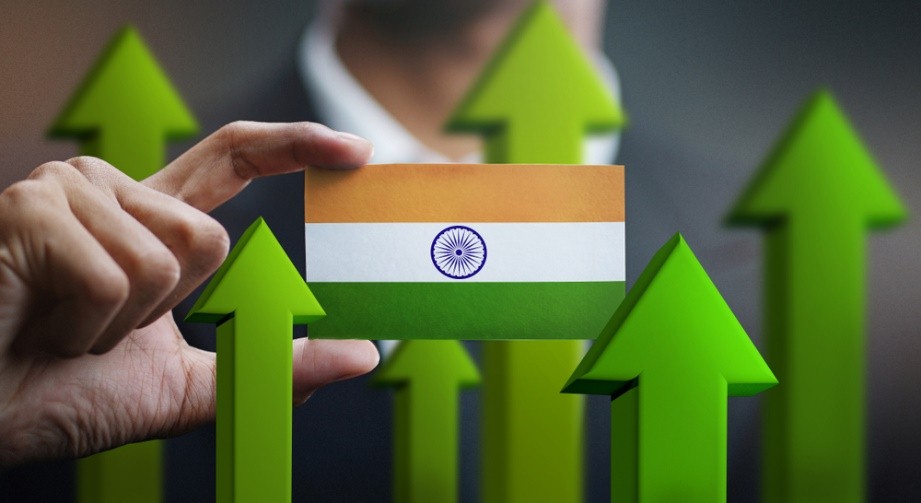
Date: 19 Jul, 2022
The Indian startup ecosystem has seen exponential growth in past few years. It has witnessed a significant increase in the number of investors, the total funding of startups and the number of incubators. There are many factors that contributed to this massive feat and have put India on the global map.
The Economic Survey 2021-22 Survey noted that the government has recognised over 14,000 new startups in 2021-22 as compared to 733 in 2016-17. The total number of recognised startups in the country has crossed 65,861. A record-breaking 44 startups turned unicorns in 2021. In April-November 2021, startups raised ?89,066 crores via 75 initial public offerings (IPOs), much higher than in any year in the last decade. India is home to a number of leading startups, including Byjus, Zomato, Flipkart, Ola, and Paytm.

The huge change that we witnessed in the landscape of the startup ecosystem in the country seems merely like an outcome of luck, but the demographical data of India shows that this shift in the startup ecosystem was inevitable. India has a population of over 1.3 billion people and a growing middle class. India has a large population of young people, with over 65% of the population below the age of 35. This, combined with a strong entrepreneurial culture, has led to a thriving startup ecosystem. A large and growing market, a strong engineering talent pool, and supportive government policies aided this change.

The scale of the startup ecosystem system in India is also due to the shift in startup hubs from Bangalore to other places like Mumbai, and Delhi, which have helped to develop a supportive startup ecosystem.
The Delhi startup ecosystem is growing rapidly with new startups forming every day. As per the recently unveiled Economic Survey of 2021–22, Delhi has overtaken Bengaluru to become the start-up capital of India. There are a number of incubators and accelerators in Delhi that are helping to foster this growth, including the Delhivery Incubation Program, TLabs, and the IIT Delhi Incubation Program. The Delhi startup ecosystem is also supported by a number of government organizations, including the Department of Science and Technology and the Ministry of New and Renewable Energy. These organizations are working to create a favourable environment for startups in Delhi and are providing funding and support to help them grow.

While statistics provide a rosy image, ground realities appear to be a tad different. The valuation of Indian startups is declining. Paytm Mall, which lost its Unicorn status in 2022, is an excellent example. In the last few months, more than 5,000 employees have been laid off from ‘promising’ startups like Vedantu, Meesho, etc. According to the IBM-sponsored report Entrepreneurial India, published in 2017, up to 90% of Indian startups fail within the first five years. As many as 77 percent of venture investors stated that a lack of innovation - the development of new technology or distinctive business models - was the leading cause of company failure. While it is an exciting moment to be a part of the Indian startup ecosystem, we must acknowledge that India has yet to develop a large firm on the scale of Facebook, Google, or ByteDance.
The Indian government has been supportive of the startup ecosystem, with initiatives such as the Startup India program. India also has a well-developed infrastructure, with strong telecommunications and internet infrastructure. This infrastructure has helped to support the growth of the startup ecosystem in India.
The government has recently been very proactive in trying to provide a nurturing environment for the startup ecosystem. The government recently extended the deadline for claiming tax holiday till 31 March 2022 by the Finance Act 2021 to incentivize startups. The government also extended the capital gains exemption for investment in startups for another year till 31 March 2022.
The Union minister of commerce and industry, Piyush Goyal has asked global venture capital funds to focus on startups from tier-2 and tier-3 cities. The minister had also said the startup fraternity should nurture 75 more unicorns in the year 2022.
According to a recent Nasscom-Zinnov research, India will have 200 unicorns by 2025, with the ecosystem supporting 37,000 tech start-ups. The ecosystem's development has been critical in terms of delivering direct and indirect job possibilities, accounting for 6.6 lakh direct jobs and more than 34 lakh indirect jobs. Financial services and banking, edu-tech, and supply chain management have been at the forefront of creating the majority of job opportunities.

The growth of the startup ecosystem is truly commendable and this positive momentum has garnered eyeballs from major investment firms. The current recession period may slow things in the startup space but businesses with strong fundamentals will sail through and we will witness more unicorns in the future.
To know more about us, visit: www.rockstudcap.com
Disclaimer — The article is made for informational purposes only and should not be regarded as an official opinion of any kind or a recommendation. It does not constitute an offer, solicitation or any invitation to public in general to invest in the stocks discussed. This article is confidential and privileged and is directed to and for the use of the addressee only. The recipient, if not the addressee, should not use this material if erroneously received, and access and use of this material in any manner by anyone other than the addressee is unauthorized. It shall not be photocopied, reproduced or distributed to others at any time. While reasonable endeavors have been made to present reliable data in the article, Rockstud Capital LLP does not guarantee the accuracy or completeness of the data in the article. Prospective readers are cautioned that any forward-looking statements are not predictions and may be subject to change without notice. No part of this material may be duplicated in any form and/or redistributed without Rockstud Capital LLP’s prior written consent.